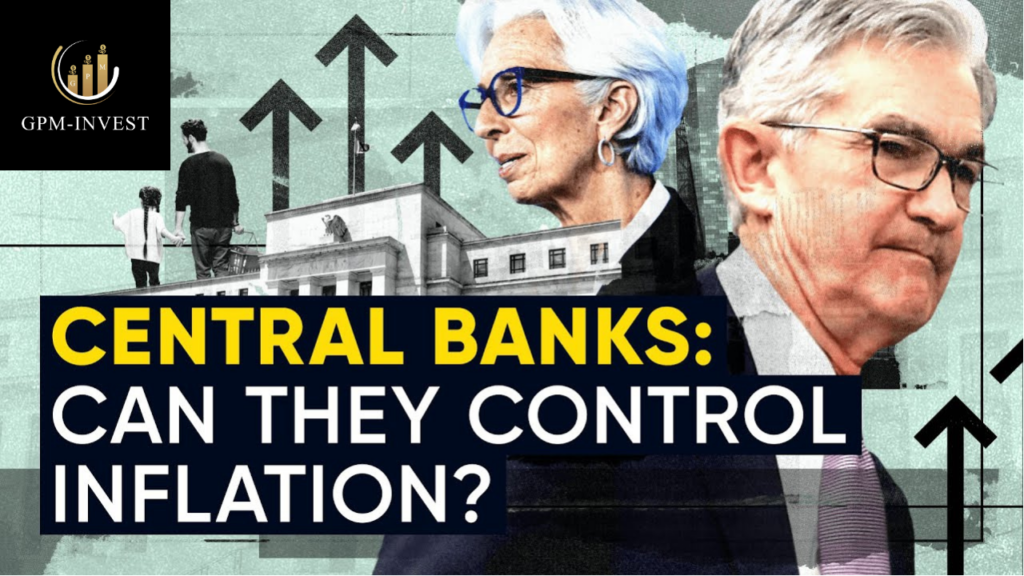Digital Zeitgeist – Global Recession Fears Intensify as Central Banks Tighten Grip on Inflation
Amidst the continuing global discussion on the best ways to tackle inflationary pressures, there comes a voice from within the UK, more specifically from Karen Ward, a member of Jeremy Hunt’s economic advisory council. Ward, doubling as a strategist at JP Morgan Asset Management, raises a daunting scenario, suggesting that central banks may have to force Western economies into a recession to truly combat inflation. Such a forecast, given its geopolitical and financial implications, needs a deep dive.
A Necessary Bitter Pill?
Last weekend at Jackson Hole, Wyoming, a gathering of central bankers gave a clear message: borrowing costs might remain higher for longer than the markets are currently factoring in. This stance isn’t born out of sheer scepticism, but from the evident patterns and figures recently emerging from the world’s major economies. German data, for instance, showcases a sharp rise in annual wage growth – hitting 6.6% in Q2 2023, a significant increase from the 5.6% of the previous quarter. This figure is historically notable, being the highest since the inception of contemporary record-keeping in 2008.
Karen Ward’s statement elucidates the catch-22 situation central banks find themselves in: “Markets bought into this idea that we could have resilient growth across the West and yet all those inflation pressures would disappear on their own… Sadly, I think it is going to require that weakness.”
The intricacies of this are clear. Economies that had been performing robustly until Q1 2023, such as the US, UK, and Eurozone, are now facing the potential of this “required weakness.” The central banks, charged with the delicate task of ensuring monetary stability, are walking a tightrope. On one side lies the risk of letting inflationary pressures run rampant, disrupting market stability and eroding purchasing power. On the other, the risk of inducing a deliberate recession, with its concomitant hardships and socio-political ramifications.
Central Banks: The Steady Sentinels
The Jackson Hole event saw key figures from the banking world opine on the matter. Jerome Powell, the chairman of the US Federal Reserve; Christine Lagarde, president of the European Central Bank; and Ben Broadbent, deputy governor of the Bank of England, concurred that it’s premature to ascertain if interest rates have reached their zenith. Broadbent’s concerns about the lingering effects of soaring prices, such as the rising compulsion on employers to hike wages, underscore the depth of the challenge. His conclusion is that monetary policy may need to be restrictive for a considerable duration.
The Wider Implications
Pushing Western economies into a recession, even if with good intent, could have far-reaching consequences. Beyond the immediate impact on GDP, employment, and consumer sentiment, there’s the global sentiment to consider. Emerging markets, heavily reliant on Western demand, could see reduced exports, exacerbating their own vulnerabilities.
Furthermore, there’s the geopolitical dimension. Economic downturns historically act as catalysts for political shifts, both within nations and in international alliances. If multiple Western economies were to enter a synchronised recession, it could provide opportunities for powers outside the West to exert greater influence.
A Devil’s Advocate Viewpoint
However, it’s worth considering an alternative perspective. Could central banks be overstating the inflationary threat? The idea isn’t entirely implausible. Past instances have seen dire predictions fall flat, with economies adjusting more adeptly than anticipated. Is it conceivable then, that the West’s robust growth could absorb inflationary pressures, obviating the need for a harsh recessionary course correction?
Conclusion
There’s no denying that the stakes are high. Ward’s warning, along with those from the world’s central banking luminaries, indicates that Western economies might be headed for challenging times. The balancing act between controlling inflation and fostering growth is a millennia-old conundrum. Yet, one can’t help but wonder if there’s a middle path, one that doesn’t necessitate the deliberate cooling of economies. Only time will provide clarity on whether this forewarned recession is the remedy to the world’s inflation woes or if economies can steer themselves to more moderate solutions.
Disclaimer: The views and opinions expressed in this article are those of the author and do not necessarily reflect the official policy or position of GPM-Invest or any other organisations mentioned. The information provided is based on contemporary sourced digital content and does not constitute financial or investment advice. Readers are encouraged to conduct further research and analysis before making any investment decisions.

